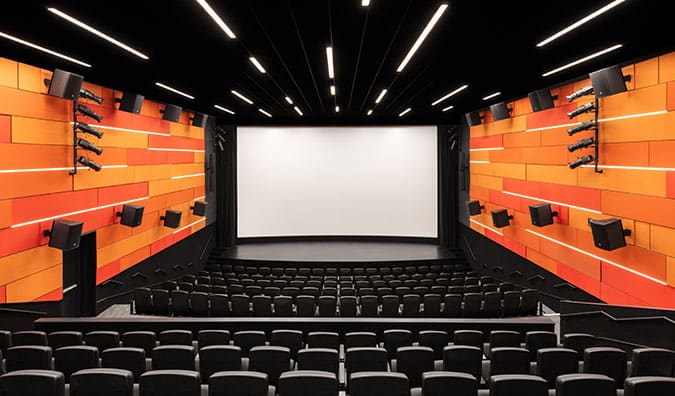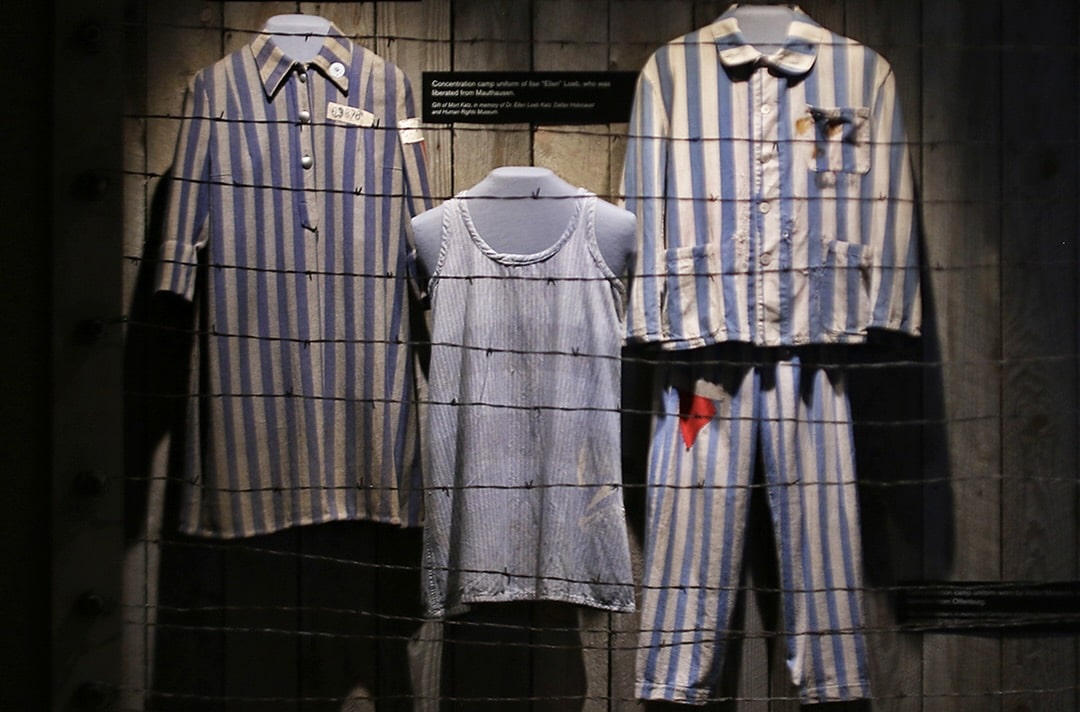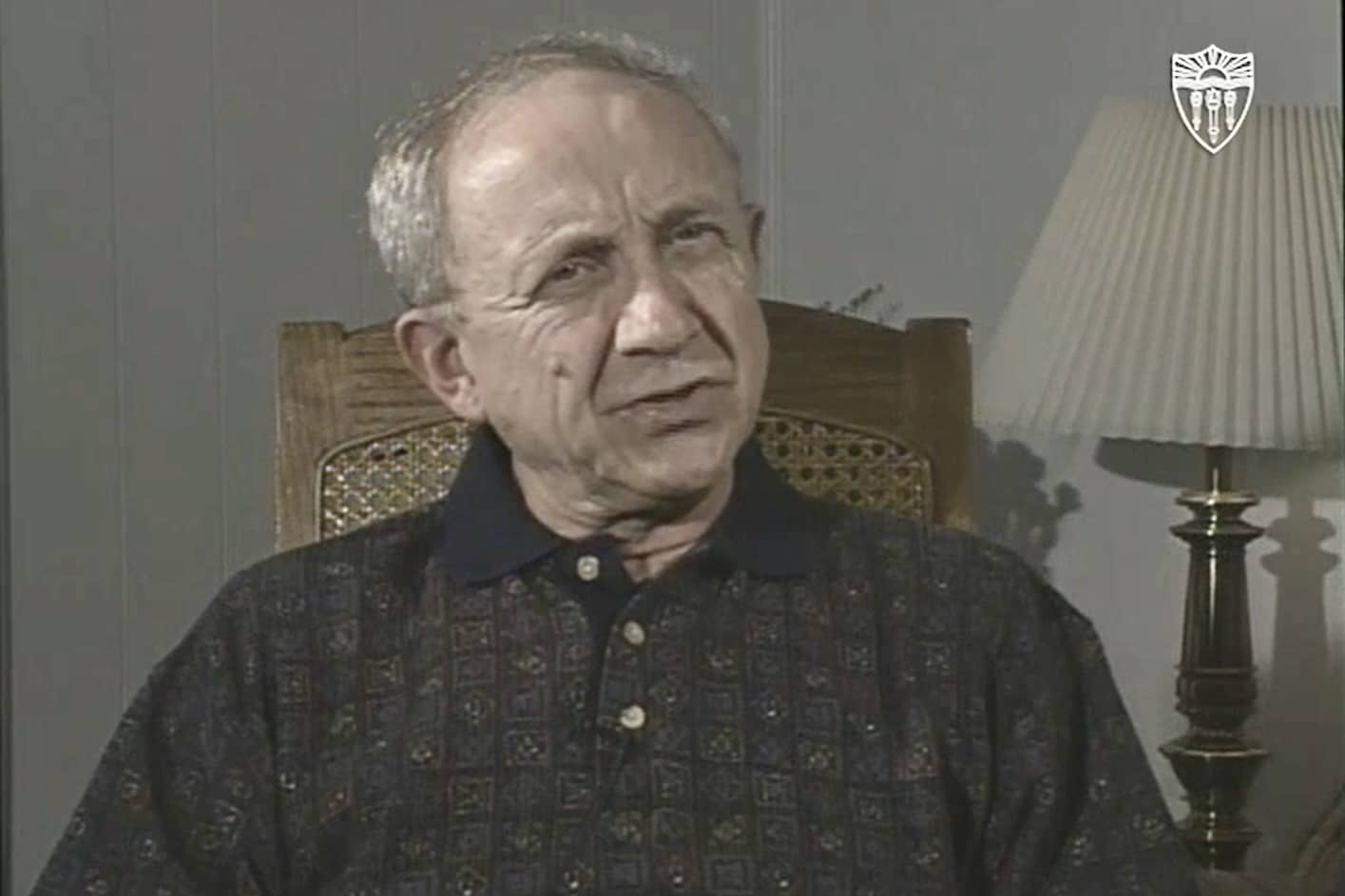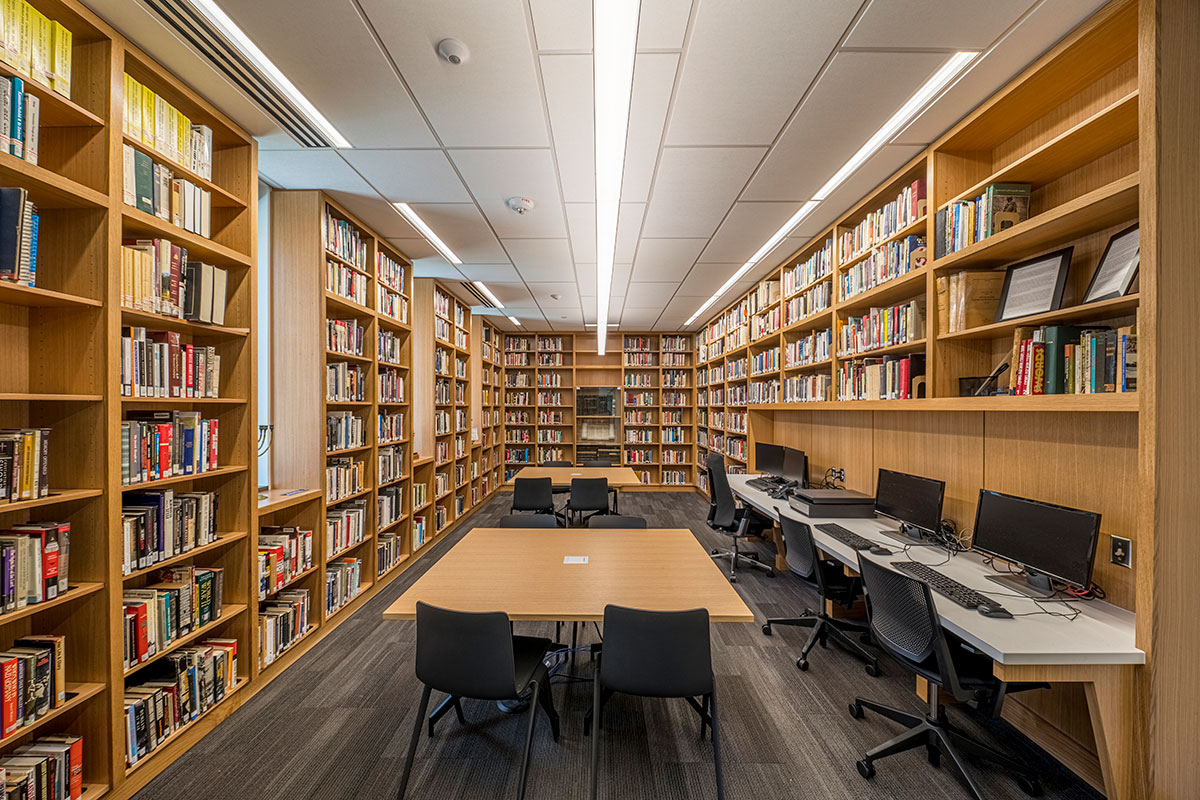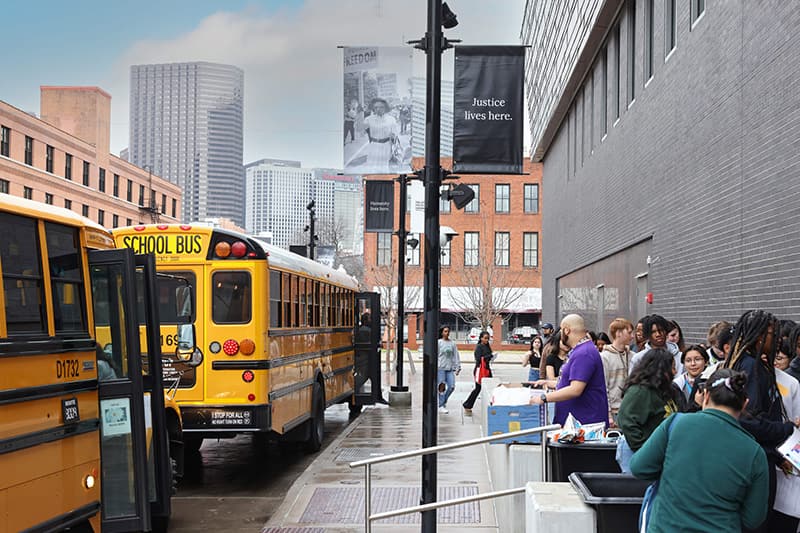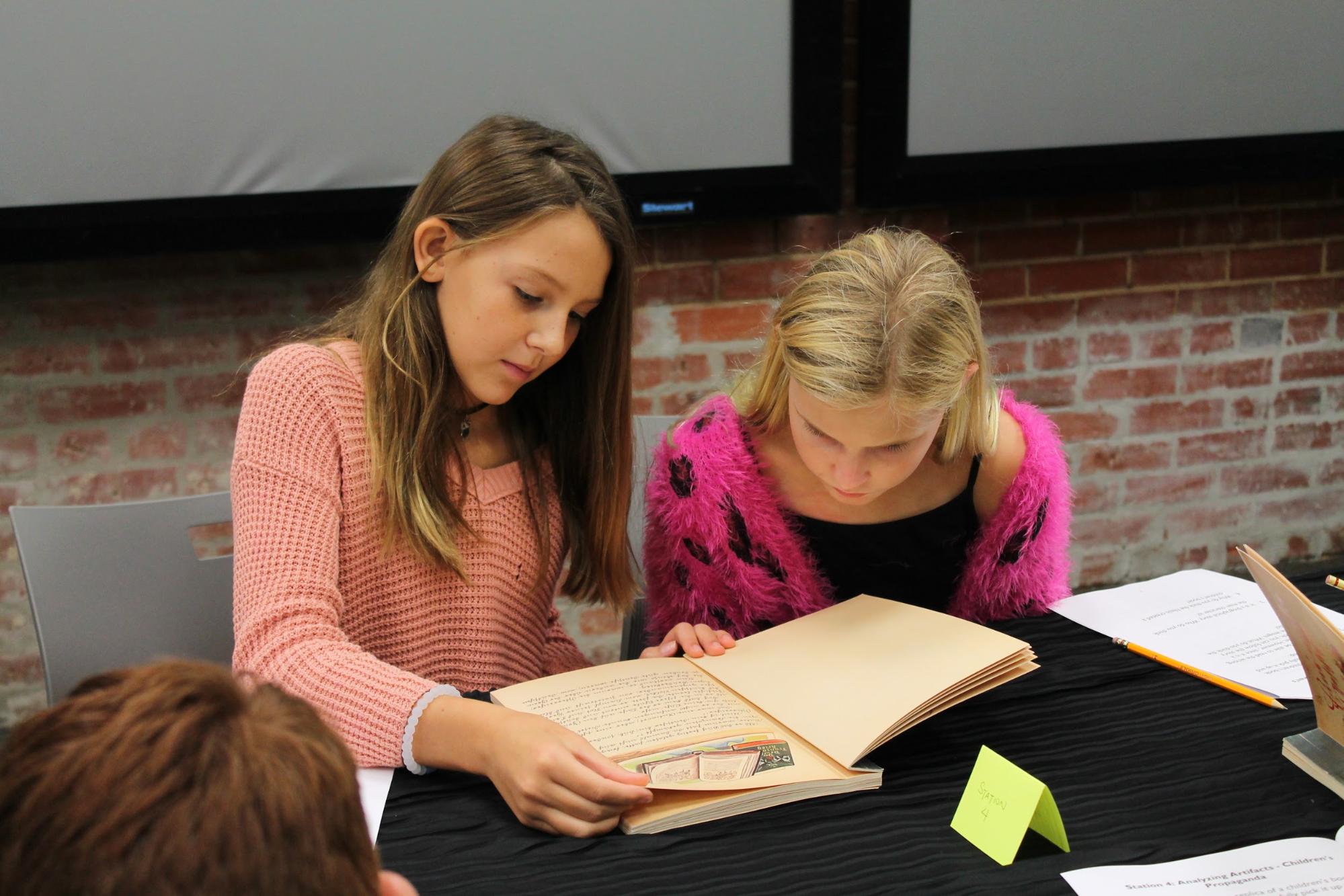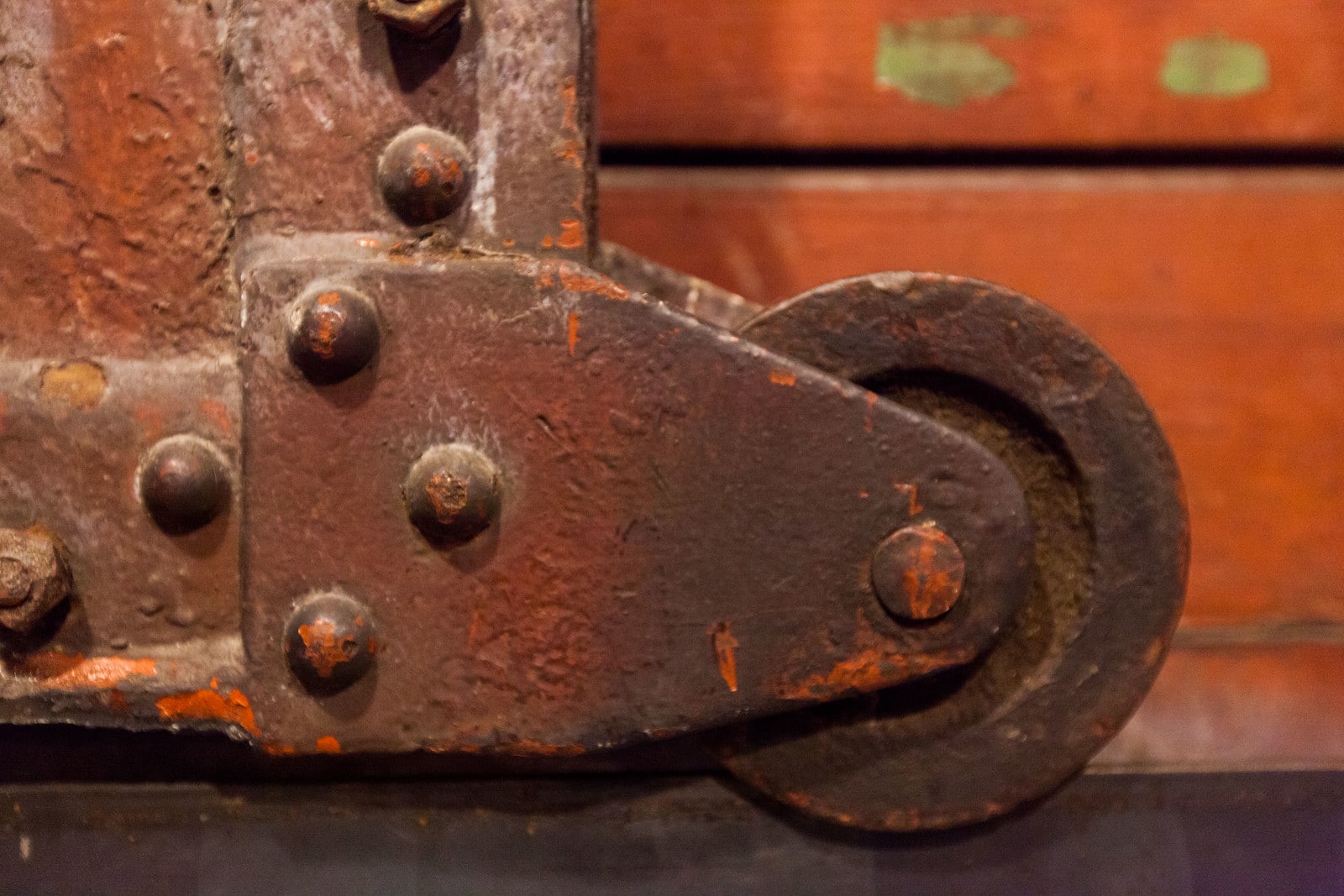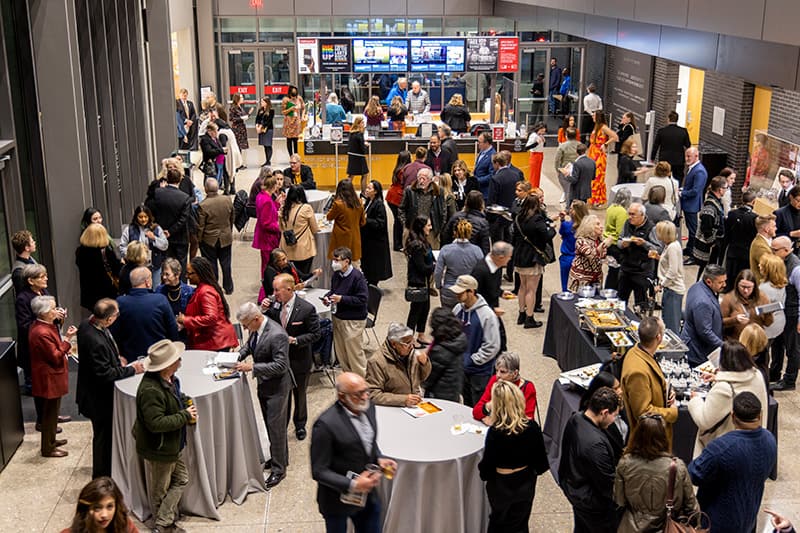The Dallas Holocaust and Human Rights Museum is pleased to announce the acquisition of Robert G. Storey’s two personal diaries, given to the Museum by family members of Mr. Storey on the 77th anniversary of the start of the Nuremberg Trials.
The diaries chronicle the personal events and journeys back and forth between Storey’s home in Dallas to a war-decimated Europe from January 1945 to October 1946. During that time, Storey played a critical role in collecting irrefutable evidence of Nazi war crimes and crimes against humanity that would be presented at the Nuremberg Trials and used to convict 19 Nazi war criminals, including Hermann Göring and Rudolf Hess.
For his efforts in uncovering and presenting evidence of Nazi crimes before the court and for his contribution to the development of international humanitarian law, Storey was awarded the U.S. Medal of Freedom and the French Legion of Honor.
“The Museum is honored to receive these precious artifacts that tell the story of one of Dallas’s most distinguished attorneys and his crucial role in bringing individuals to justice following the horrific crimes perpetrated by the Nazis in World War II,” said Mary Pat Higgins, Museum president and CEO. “Thanks to his family’s generosity and the work of our preservation and education professionals at the Museum, Robert Storey’s diaries will help tell the broader story of the Nuremberg Trials.”
A veteran of both world wars, Storey enjoyed a prominent legal career during peacetime as an Assistant Attorney General for Texas in the 1920s and as the President of the Dallas Bar in the 1930s. His reputation as an attorney made him a top pick to serve as the executive trial counsel for U.S. Supreme Court Justice Robert Jackson, America’s chief prosecutor at the Nuremberg Trials from 1945 to 1946. His work with Justice Jackson would set a powerful precedent for modern international law.
“The 1945 journal details Storey’s recruitment by Justice Jackson to help prosecute Nazi war criminals and his frequent trips across Europe to collect evidence,” said Felicia Williamson, MLIS, CA, director of library and archives at the Dallas Holocaust and Human Rights Museum. “The 1946 journal contains Storey’s reflections as he encounters high-level Nazi officials imprisoned in Germany while the American and other Allied prosecution teams grapple with the trial and sentencing process in Nuremberg.”
“These important artifacts give us a meaningful window into Storey’s psyche as he longs for his wife and family at home while attending to the important work of his team in Nuremberg,” said Dr. Sara Abosch-Jacobson, the Barbara Rabin chief education officer for the Dallas Holocaust and Human Rights Museum. “These journals coincide with one of the most important moments in the history of the articulation of international human rights.”
Storey’s diaries will be added to the Dallas Holocaust and Human Rights Museum’s extensive gallery on the Nuremberg Trials housed within its Human Rights Wing. The gallery details the scope of global participation in the trials and its influence on the development of the Universal Declaration of Human Rights.
“The Storey family is pleased to find a lasting home for Robert G. Storey’s Nuremburg journals at the Dallas Holocaust and Human Rights Museum,” said Harry Storey, grandson of Robert G. Storey. “It is important to us that the journals be digitized and preserved, so they are available for historians and others interested in the Nuremberg Trials. Robert Storey spent his life promoting peace and justice through law. Hopefully, the journals will encourage others to continue to promote these goals.”
Robert G. “Gerry” Storey III, a grandson, said the journals provide, “A fascinating insight into our grandfather’s life and times during this time in history. When he got asked to serve with Justice Jackson to ‘help prosecute high Nazi’s’ (quote from June 8, 1945), he could not refuse. The journals make us realize the importance of writing and keeping a record of all the happenings.
“Our family believed the Dallas Holocaust Museum is a good home for these journals, not only because they are in Dallas, but we have seen how dedicated the museum staff is to preserving them for posterity. Because of the Museum, more people and scholars will have access to this historically important event.”
After fulfilling his duties for the U.S. Army, including his indispensable work in preparation for the trials, Storey returned home to his family in Dallas and became Dean of Southern Methodist University’s Dedman School of Law, serving from 1947 to 1959.
The journals are fully digitized and available online, along with 7,005 additional objects, at the Museum’s digital catalog. The 1945 diary may be accessed here. The 1946 diary may be accessed here.
The physical diaries, beginning with the 1946 journal, will go on display at the Dallas Holocaust and Human Rights Museum the week of November 13 and will rotate annually.
# # # #
About the Dallas Holocaust and Human Rights Museum
The mission of the Dallas Holocaust and Human Rights Museum is to teach the history of the Holocaust and advance human rights to combat prejudice, hatred, and indifference. Founded in 1984 by local Holocaust survivors, the institution now resides in a new building in downtown Dallas where visitors experience a deeper immersion into the history of the Holocaust, human and civil rights, their centrality to our democracy, and their vital importance in preventing events like those of the Holocaust from happening again. The 55,000-square-foot permanent home covers three floors, and the main exhibition includes four wings that teach about the Holocaust, the creation of the Universal Declaration of Human Rights after World War II, historical and contemporary genocides, and America’s civil rights journey. Please visit DHHRM.org or call (214) 741-7500 for more information.


